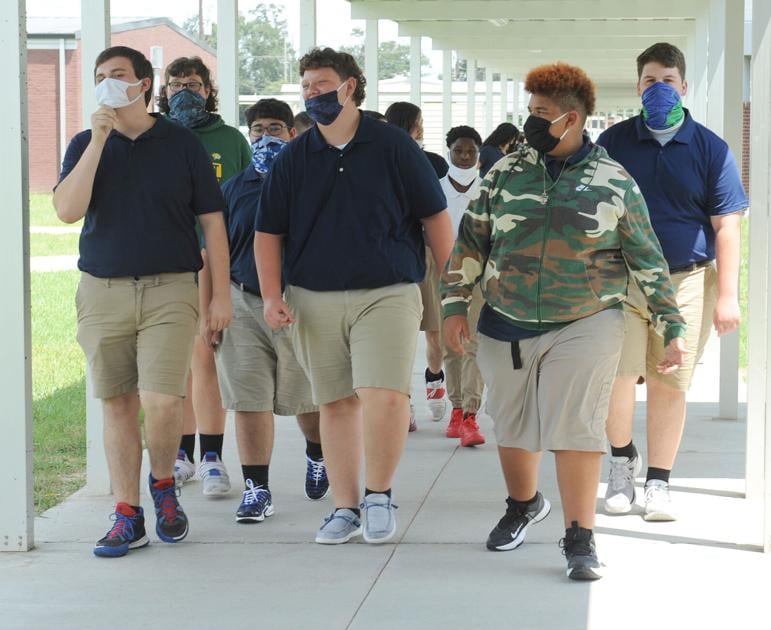Patrick Dobard: As we move beyond the pandemic, we need a new commitment to better schools | Opinion
[ad_1]
The lives and learning of our children are affected every day by long-standing inequalities. Standardized tests, like the Louisiana Educational Assessment Program, can make these inequalities painfully apparent. A few weeks ago the results of the latest LEAP came out and they are no exception.
In 2019, before COVID-19 hit Louisiana, about half of white students in our state were at the school level (scoring “master’s” or “advanced” on LEAP), compared to one in five black students. Scores were also uneven across economic lines; only one in four of Louisiana students classified by the state as economically disadvantaged were at school level.
As of spring 2020, there was no LEAP assessment, as schools and communities have been collectively rocked since the start of the pandemic. Standardized tests are not a complete picture of children’s knowledge and skills, nor do they demonstrate determination or intelligence. They do, however, help us measure the extent to which students master grade standards.
This year, we thought it was essential to understand that and see the impact of the pandemic on student progress. We also felt that the results would quell foolish claims that inequality in Louisiana is not as entrenched as it seems. We thought they would make it clear that we need more funding and focus for schools whose students experience the most inequities.
The Louisiana Department of Education administered the test last spring, and the results are clear; the inequalities in our state have not only continued, but have worsened. COVID-19, of course, has affected learning. Children whose communities have been most affected by the virus – students of color and students from low-income communities – as well as special education students and English language learners, have had their learning impacted the most.
This means that one crisis has been built on another. The majority of students in Louisiana were not doing well before the pandemic. State standards have risen in recent years, and testing has become more rigorous to better prepare Louisiana students for college and career. This was an important change which made it clear that we still have a long way to go.
The pandemic means we have an even longer way to go. Today, 29% of students in Grades 3 to 8 in the state have demonstrated understanding at the school level, compared with 15% of black students and 21% of economically disadvantaged students.
It is a staggering injustice that less than 2 in 10 black children in this state meet state standards. These children have long been denied equal resources inside and outside the education system, and when disasters like COVID-19 strike, they are the ones most affected. We cannot deny this link. On August 8, the Advocate’s staff editorial suggested that the “mask wars” in schools distract from the real problem of their low LEAP scores. But the pandemic problem and this year’s scores are fundamentally linked.
To help our children catch up, we need to stop the virus in its tracks. The recent increase in cases in New Orleans alone is alarming. Districts and schools must continue to prioritize weekly or even daily COVID-19 testing, vaccinations, and incentives for those vaccinations. Providing this funding can slow the widening of the inequity chasm.
Educators, of course, play an important role here as well. Teachers alone cannot fix the inequalities our students face, but they can help offset their impact. They know that the future of their students is not marked by the injustices they suffer. Over the past year, teachers have adapted to the Herculean task of teaching virtually and in person, sometimes simultaneously. Schools and the district have also responded to many extracurricular needs, providing resources such as fresh meals, laptops and Wi-Fi hotspots, and mental health supports.
As a society, we must use this data to fuel a more equitable distribution of resources among all of our children. Well-off students often begin their educational experience with key supports that some of our most marginalized students lack, such as stable housing, a parent who has time to help them with homework or regular meals. We can and must help offset this inequity through strategic funding and training. Educators can continue to keep students at the high bar they deserve and continue to support fiercely to help them achieve it.
Ultimately, we will emerge from this pandemic. It will take time, focus, and decisions driven by reality, not rhetoric. Our educators are thoughtful and courageous on a daily basis. Decision-makers and stakeholders, we owe them the same.
Patrick Dobard conducts New schools for New Orleans.
Our Views: Forget the Mask Wars; Louisiana schools have much bigger challenges
[ad_2]

